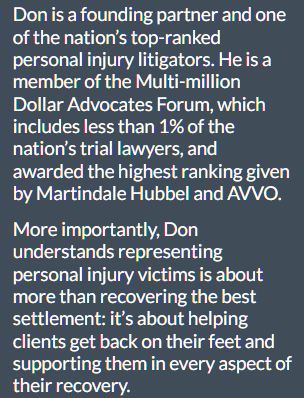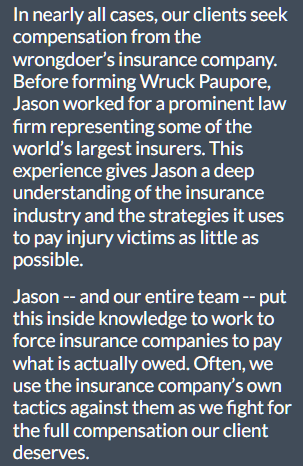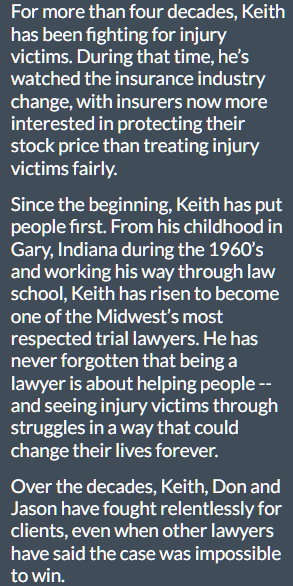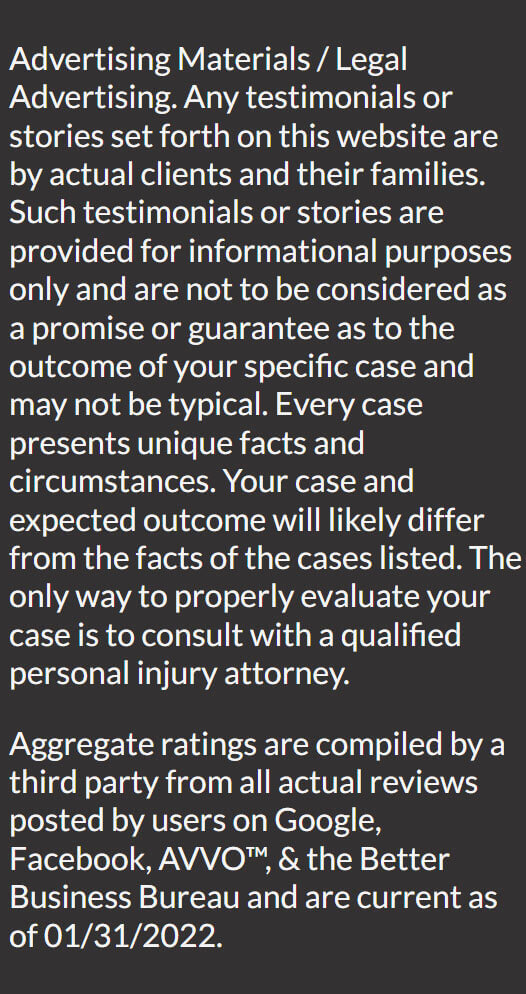




With hunting season in full swing, staying safe and knowing your legal rights is important in case you are injured. Our lawyers can help determine how your hunting accident was caused and who can be held liable.
Liability for a hunting accident can be tricky since Indiana expects hunters to act responsibly and take the necessary precautions. Property owners are generally not liable for hunting accidents that occur on their land but could be sued if they knowingly allowed a dangerous condition to remain on the property or acted maliciously. We can also help hold other hunters liable if a negligent person in your hunting party injured you or someone mistook you for game. If you fell because of a poorly produced tree stand, we can potentially file a claim against the manufacturer.
For a free case review with our Indiana personal injury lawyers, call Wruck Paupore at (219) 322-1166.
Countless residents and others from the Midwest come to Indiana to enjoy the hunting opportunities the state offers. While the majority of hunters are responsible with their firearms and understand the rules to stay safe, accidents still happen. If you were injured in a hunting accident, our personal injury attorneys in Indiana can help you determine if you can sue and who you can file your claim against. You might first think of the property owner if you were injured on another person’s land, but their liability is generally limited for “agritourism activities” like hunting. If another hunter or negligently manufactured tree stand caused your injuries, you will have a better chance of holding them liable. In rarer cases, gun manufacturers should be held accountable for producing a defective firearm.
Property owners who offer access to their land for hunting are considered agritourism providers. However, you cannot hunt on private property without the owner’s consent, according to I.C. § 14-22-10-1. If you do, you would be considered a trespasser, and landowners owe little duty to those not expected to be on the land. Still, most hunters are legally on the land, but that does not mean a property owner will be liable for a hunting accident.
Under § 14-22-10-2.5, a property owner is not liable for the injury or death of a hunter if the accident results from the inherent risks of hunting and being on the land. Hunting carries inherent risks, including injury from the land, equipment, and wildlife.
Additionally, there is a chance that you could act negligently, which might lead to your own injury or even death, or others might behave in ways that could harm you. When hunting, you accept these risks and must take the necessary precautions to ensure your safety. If the accident arose because of something associated with hunting, the property owner will likely not be responsible, whether or not you paid to enter the land.
The law does not shield landowners from liability if they are aware of a dangerous condition on their property or should reasonably be aware of it and fail to inform hunters of that danger, leading to an accident. Additionally, a property owner can be held responsible if they deliberately ignore the safety of others or intentionally harm a hunter.
It is also worth noting that Indiana is a “purple paint” state. If you see purple paint on trees or elsewhere you are hunting, it indicates that the land is private and you are trespassing if you do not have the landowner’s consent, as per § 35-43-2-2(c)(4). Thus, always be sure to get a signed permission form before hunting on private land.
A major source of danger when hunting comes from other hunters. In some cases, a hunter mistakes another person for an animal without taking the time to judge their target correctly. In other cases, a hunter misjudges the distance of a target, or their aim is completely off, hitting another hunter. The fact that a hunter did not intend to hit another person does not protect them from liability. They still intended to shoot but did not intend the consequences of their carelessness. Make sure you are wearing the proper safety gear and clothing so you are readily identifiable in the tree line. Otherwise, you might lose compensation for contributing to the accident.
Some hunters injure others because they mishandle their firearms or lack proper trigger discipline. For instance, if a hunter walks around with the safety off and trips, it can easily lead to an accidental discharge. Accidents like these are more common in hunting parties where someone is not taking their responsibilities as seriously as others or is even intoxicated at the time. In fact, reports show that most hunting accidents happen within 10 yards of the firearm. If so, we can help you file a claim against them for negligently handling their gun.
Many hunters use tree stands and harnesses to get a better vantage point when hunting game. The manufacturer or designer might be responsible if a tree stand is meant for a certain weight but does not hold or the securing mechanisms are poorly produced. Product designers and manufacturers are liable for ensuring that their products work as intended and are tested before being commercially available. If the design is flawed from the start or substandard parts are used, the equipment can fail, causing serious injuries in the fall.
Not all misfires and gun accidents are the fault of the hunter. As tree stands, guns can be negligently manufactured, causing the defective weapon to discharge unexpectedly.
In other cases, mechanisms in the gun might be the culprit, like a defective bolt action or poorly made ammunition, causing catastrophic injuries if the weapon explodes when firing. Our team can gather evidence to determine where negligence occurred in the manufacturing process.
For a free case assessment from our Lafayette, IN personal injury lawyers at Wruck Paupore, call (219) 322-1166.
Don is a founding partner and one of the nation’s top-ranked personal injury litigators. He is a member of the Multi-million Dollar Advocates Forum, which includes less than 1% of the nation’s trial lawyers, and awarded the highest ranking given by Martindale Hubbel and AVVO.
More importantly, Don understands representing personal injury victims is about more than recovering the best settlement: it’s about helping clients get back on their feet and supporting them in every aspect of their recovery.

In nearly all cases, our clients seek compensation from the wrongdoer’s insurance company. Before forming Wruck Paupore, Jason worked for a prominent law firm representing some of the world’s largest insurers. This experience gives Jason a deep understanding of the insurance industry and the strategies it uses to pay injury victims as little as possible.
Jason -- and our entire team -- put this inside knowledge to work to force insurance companies to pay what is actually owed. Often, we use the insurance company’s own tactics against them as we fight for the full compensation our client deserves.

For more than four decades, Keith has been fighting for injury victims. During that time, he’s watched the insurance industry change, with insurers now more interested in protecting their stock price than treating injury victims fairly.
Since the beginning, Keith has put people first. From his childhood in Gary, Indiana during the 1960’s and working his way through law school, Keith has risen to become one of the Midwest’s most respected trial lawyers. He has never forgotten that being a lawyer is about helping people -- and seeing injury victims through struggles in a way that could change their lives forever.
Over the decades, Keith, Don and Jason have fought relentlessly for clients, even when other lawyers have said the case was impossible to win.


© 2025
Terms of Service | Privacy Policy | Resources | Blog | Sitemap

© 2022 Wruck Paupore PC
Terms of Service | Privacy Policy